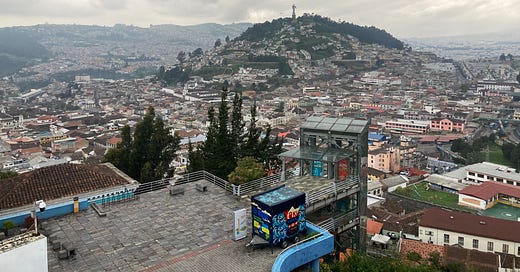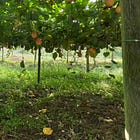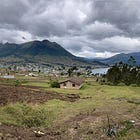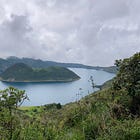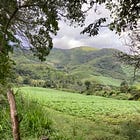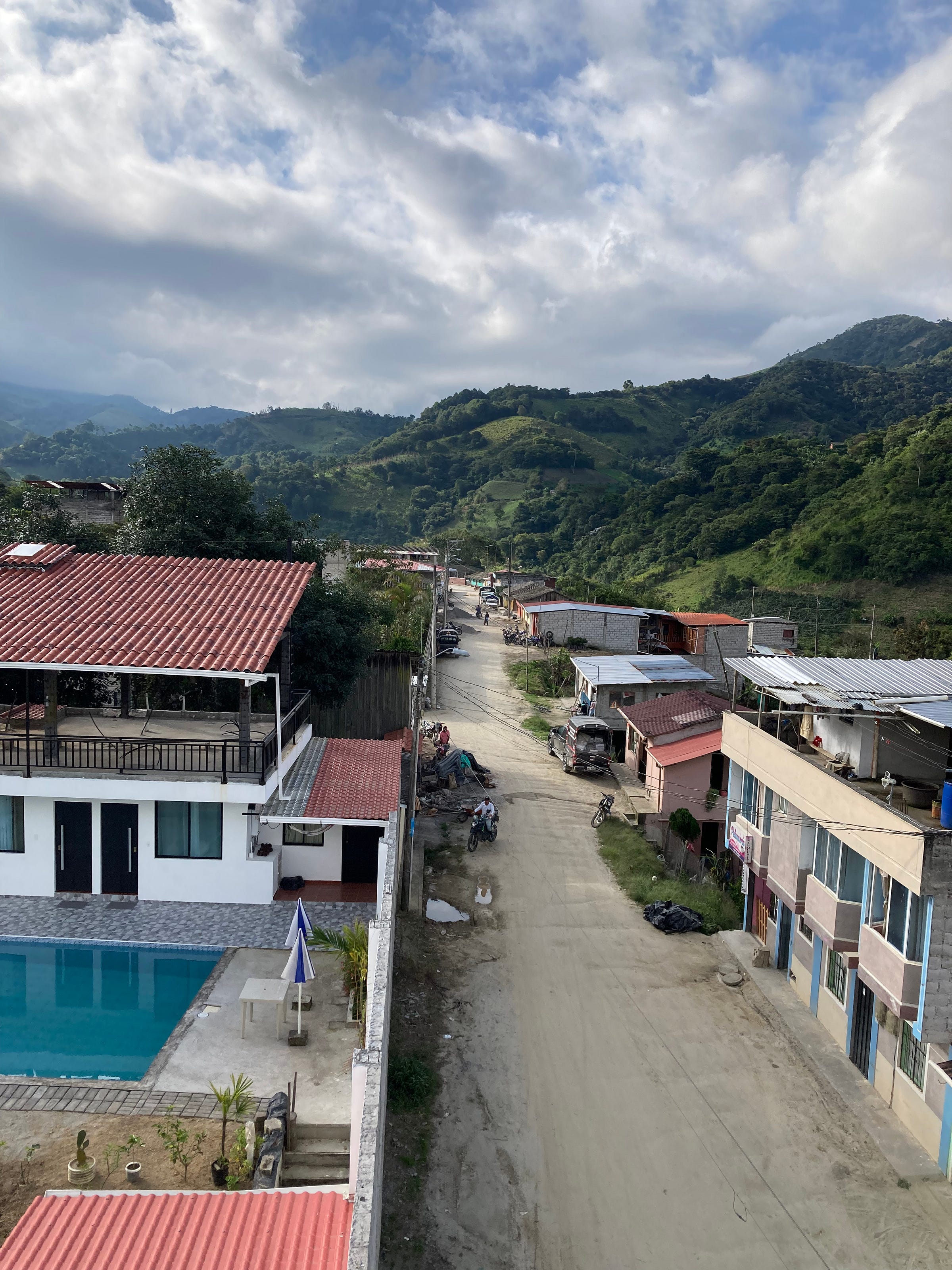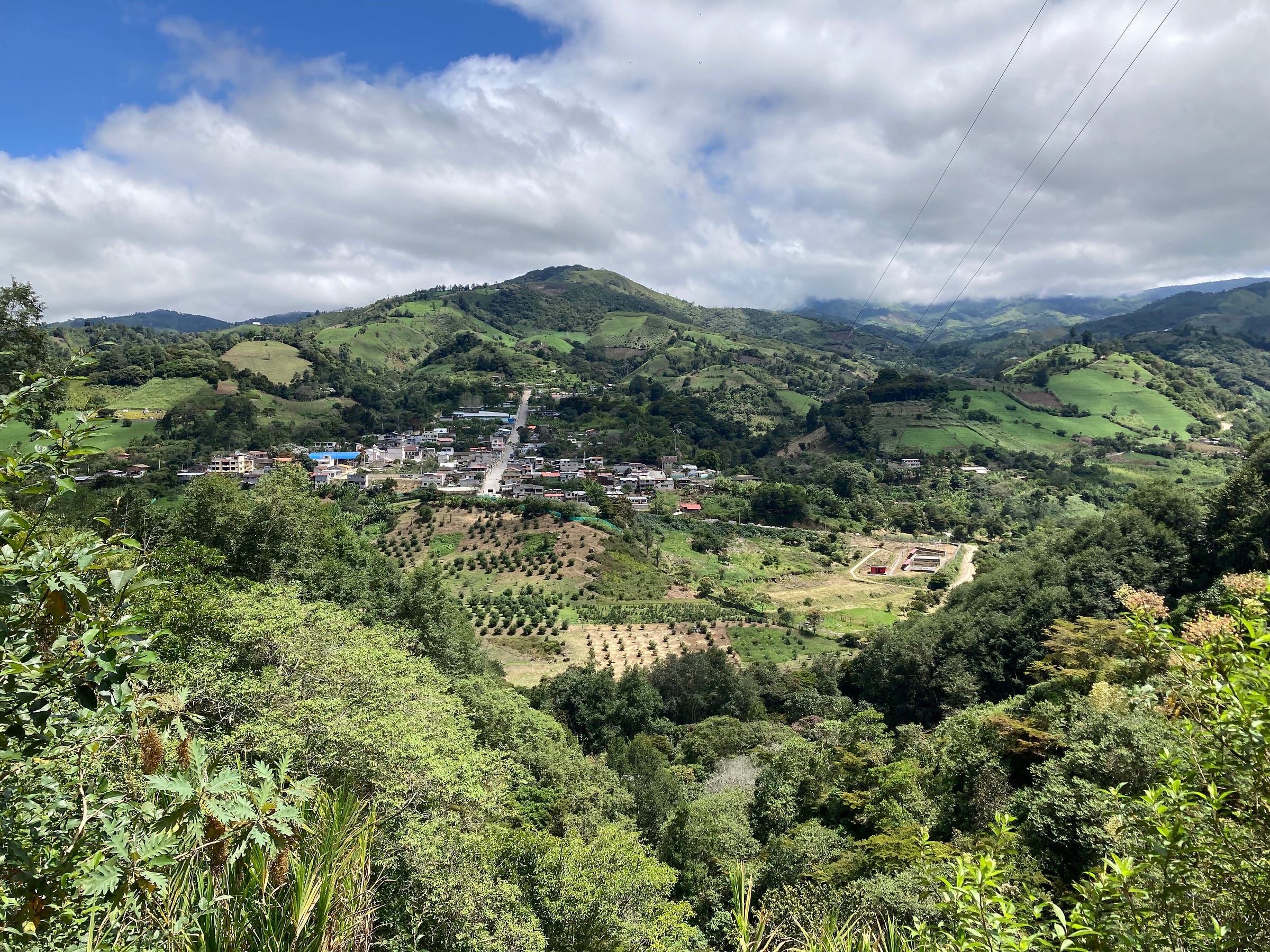What follows are the first two entries from the daily diary I kept while in Ecuador this summer, where I was teaching English in a rural school in Imbabura province. I will publish the rest of the entries in the coming weeks—though I may edit out the particularly boring days add detail to the more interesting entries. I arrived in Quito—the capital—on May 28 and spent a couple days there, staying with family friends in the Iñaquito neighbourhood. The diary starts when I get to the countryside
June 2
I arrived in Cuellaje today. I took a bus from Terminal Terrestre Carcelén in the north of Quito to Otavalo—a mid-sized Andean city at the foot of the Imbabura, Mojanda, and Cotacachi volcanoes—and then a bus from Otavalo to Cuellaje—a tiny town in the Intag cloud forest. Ecuadorian bus terminals are a full-body experience. Behind each ticket window is a guy screaming at you to buy tickets from his company rather than a rival. I rode with the company Express Tulcán.
The old guy sitting next to me on the bus got annoyed because the bus kept stopping so vendors could walk up and down the aisle hawking bizcochos and agüitas. He had a terse exchange with the driver and later lamented to me how slow we were going. This is how my conversation with Vinicio began: He’s a lawyer from a Macas, an indigenous city in Oriente—his first language is neither Spanish nor Kichwa (I couldn’t understand what the name of the language was). We have each other’s contact, and he has invited me to come stay in his community to teach them English (and they can teach me Spanish).
In Otavalo, I failed to buy a map of Ecuador and nearly missed the bus to Cuellaje. The buses are large, greyhound style coaches. It’s a miracle it could navigate the windy, dirt road through the jungle and mountains of Intag. In Cuellaje I found Ned, the guy I was supposed to meet. He would send me to live with a family nearby and teach at the local school. Ned works for the town government and was busy solving a million little problems when I arrived. For one, the bus I had come on couldn’t get out of town because there was a low-hanging cable over the street. He solved that. I met his wife, Patricia, and helped her and some others prepare for el Dia del Niño at the school. Then I ate eggs, beans, and rice (which Patricia prepared for me) and went to the sole hotel in Cuellaje, where I’m writing this. I’m paying $10 a night (rather than $8) to have a private bathroom. Ned says they’re very chill about the payment here—I’ll give them their money at some point.
June 3
At 8:00, I left the hotel and went to get breakfast at Patricia and Ned’s. The hotel seems to be eternally empty except for the echoes of distant salsa music. Also, all the rooms’ doors are open. And the front door is always open. For breakfast we had tortillas (which are like balls of fried yuca and cheese—nothing like Mexican tortillas) and eggs. It was very good. Then I helped Patricia shell beans (fréjoles, they say here, not frijoles). A man came in to sit with us and talk to Patricia. She gave him soup and coffee. As I shelled beans, I tried to understand their conversation. It seems he was have woman troubles (he had a girlfriend? Or maybe a few? He was trying to get back with his wife?). Patricia explained it to me afterward (in Spanish, so I only understood like 60% of the affair). She said this guy’s job was to clean the central park of Cuellaje, which apparently doesn’t get you many girls. But it seems like he had too many girls, not too few.
Patricia and I took slop to the pigs next. The buckets were full of giblets, avocado, and whatever else she had in the yard waste. We left Cuellaje, walking on a dirt road into the hills, basically through a jungle. On the way we stopped to taste raw coffee beans (coffee plants were growing along the side of the road). We went to a plot of land high up on very steep hill. There were lots of beans and corn plants. The pigs were tied to trees on long leashes. They had some shade and shelter. We then harvested corn for a while—bad corn, which we would feed to the pigs, called chanchos here. Patricia showed me dried quinoa plants. We ate oranges that were super delicious—their skin was extra thick and tough. We then pulled up some yuca roots and walked back to town.
I went on a two hour walk up in the mountains on the other side of the river, which flowed next to Cuellaje. The views are incredible. The sides of the valley are covered in a checkerboard of greenery: jungle, grass, corn plants, bean plants, avocado trees, citrus trees, anything and everything. Ecuadorians will farm on even the steepest inclines; I have no idea how. I passed by many chickens, dogs, and kids on motorcycles on the road.
For lunch, Patricia gave me chicken and beans and rice. Then I helped shell beans. I then went by to the hotel to rest for a bit. In the evening I went back to help shell beans. Patricia’s friend, Edwin, a guy my age from another canton of Imbabura, was there to hang out. He and I chatted about music and TV shows. We ate cheese empanadas and soup with yuca in it.

